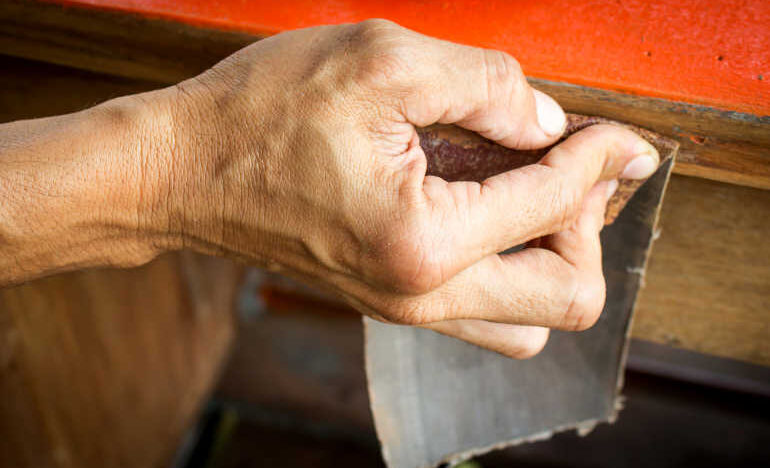Sandpaper People, an Assembling God’s Puzzle video

By Fr. Garry Richmeier, CPPS.
I have learned so much from the people I’ve worked with over my 39 years as a priest and 28 years as a licensed marriage and family counselor. The people I’ve worked with have taught me much about living life, especially what works well and not so well.
I’d like to share what I’ve learned with you in a video series that I call “Assembling God’s Puzzle: Reflections on Health and Wholeness.” Below is my second entry.
Sandpaper people
One of the common life puzzle pieces that we all deal with is difficult people. We avoid them when we can, but if they are our boss, in-law, family member, or another person close to us, we can’t avoid them. There is probably no way we will be thrilled to be around them, so how do we fit them into our lives in a better way?
I like to call them “Sandpaper people.” When sandpaper rubs against wood, it’s a very destructive, abrasive interaction that makes a noise that many people can’t stand, like fingernails scratching a chalkboard. But in that process, the wood is made very smooth, pleasant to the touch, and ready to be stained and varnished. Difficult people in our lives can be seen as sandpaper and we are the wood. They can smooth out our rough edges and ready us for what lies ahead in life.
For example, a person may be difficult because they are always late. We will probably never really enjoy that, but it may be an interaction that helps smooth our rough edge of impatience, helping us grow in the virtue of patience. A person who is self-absorbed and never lets anyone else talk may be irritating to us, but they may also be helping us recognize our own desire to be the center of attention and helping us practice humility. That overly critical difficult person in our life, although not totally accurate, may be helping us to recognize our weaknesses in a more realistic way rather than deny them.
Depending on how we look at them, difficult people can be tools of torture God put into our lives in order to make us miserable, or they can be God’s “smoothing tools,” put there to help us increase some gift, ability, or virtue.
We get good at what we practice, so here is a suggested practice. Bring to mind a difficult person in your life. Imagine being with them, what they do and how it feels. Now, instead of focusing on them in your imagination, bring your focus to yourself. See if you can identify what “rough edge” in you is being smoothed. Is it impatience, judgmentalism, intolerance, etc. Then see if you can identify the corresponding gift/skill/virtue you are being asked to practice. You can even make this part of your prayer, asking God how God is working to “smooth” you. If you practice this type of thing often ahead of time, when you get into the actual situation again with the difficult person, you may be able to be a little less irritated, frustrated, and annoyed. And a little less of that stuff makes life a little better.
Photo 39495621 / Sandpaper People © Kamontad123 | Dreamstime.com
Illustration 186385711 © StockSupply | Dreamstime.com
All of the videos in this series can be found here: Assembly God’s Puzzle.
Never miss an article published on the Renewal Center website: Sign up to receive our newsletters.
We’d Like to Hear from You!
We’d like to know what you think about this article. Send us a comment using the form below. Do you have a suggestion? Is there something you want to learn more about? Send us a note
Related

Pilgrims of Hope, Episode 6: Walking with Cancer Survivors
Hosted by Fr. Ron Will, C.PP.S.
We are talking with people who find hope amid difficult circumstances or bring hope to others. In this episode, Kathy Keary talks about how centering prayer, journaling and other spiritual practices helped her cope with two life threatening health issues.

The Rollercoaster Torture
An Assembling God’s Puzzle video
By Fr. Garry Richmeier, C.PP.S.
Life is full of ups and downs, like a roller coaster, and that fact is a piece of life’s puzzle that we must deal with. Depending on how we deal with it, it can be torture, or it can be simply another difficult aspect of life to be navigated. How do we avoid the torture?
Categories
Assembling God's Puzzle Coffee with Padre Cooking & Spirituality Encounters of the 4th Kind Family Matters Reflections on the Eucharsitic Prayers Spiritual Resources Taize Prayers The Contemplative Life Traveling with Pilgrims of Hope Uncategorized Videos Week of Prayer for Uhristian Unity When you need a little help
